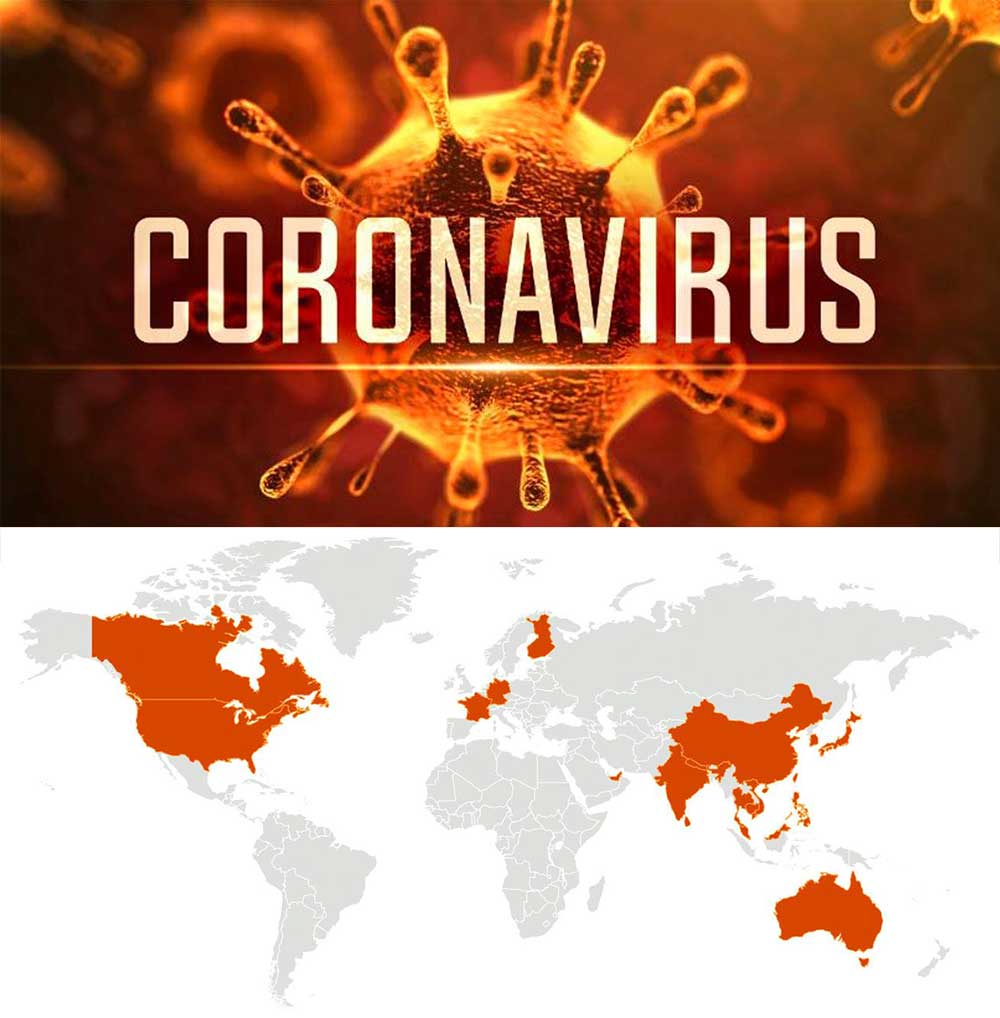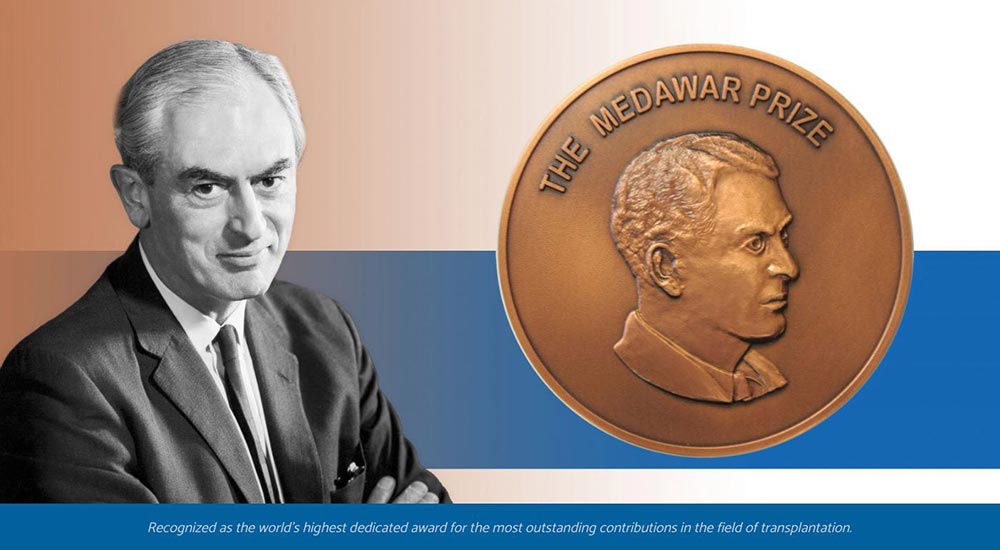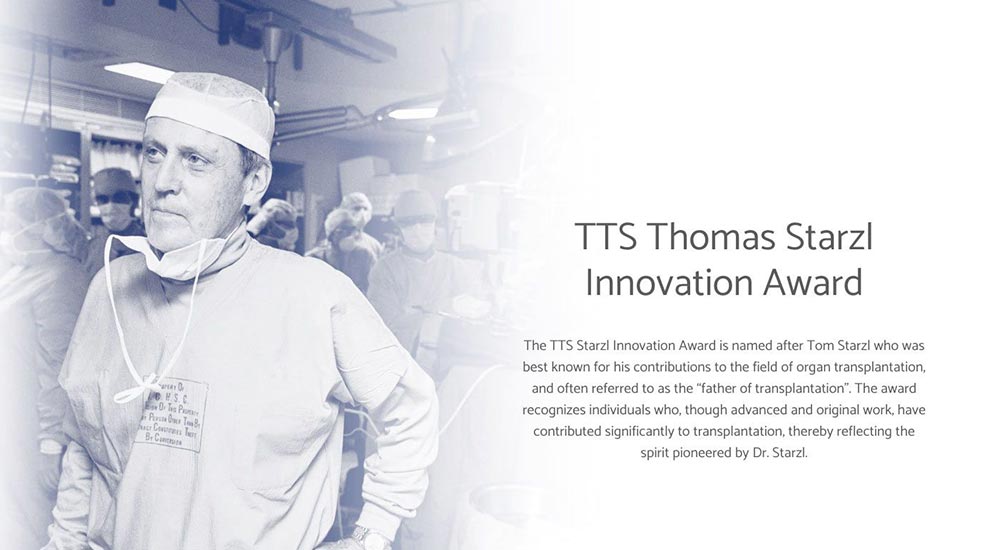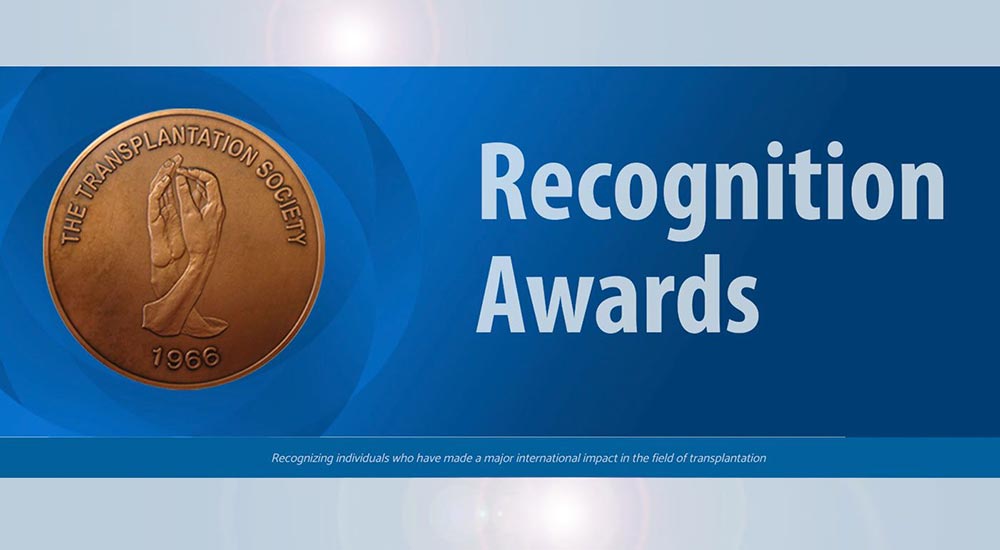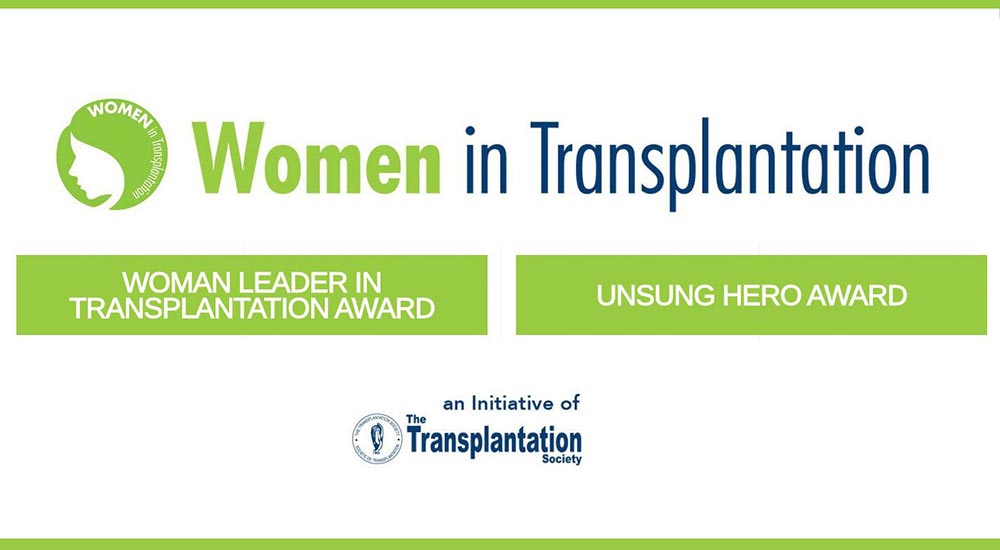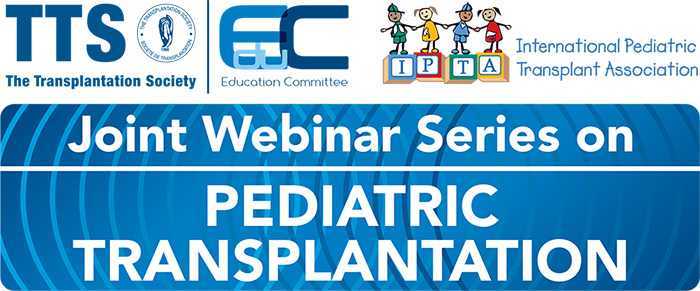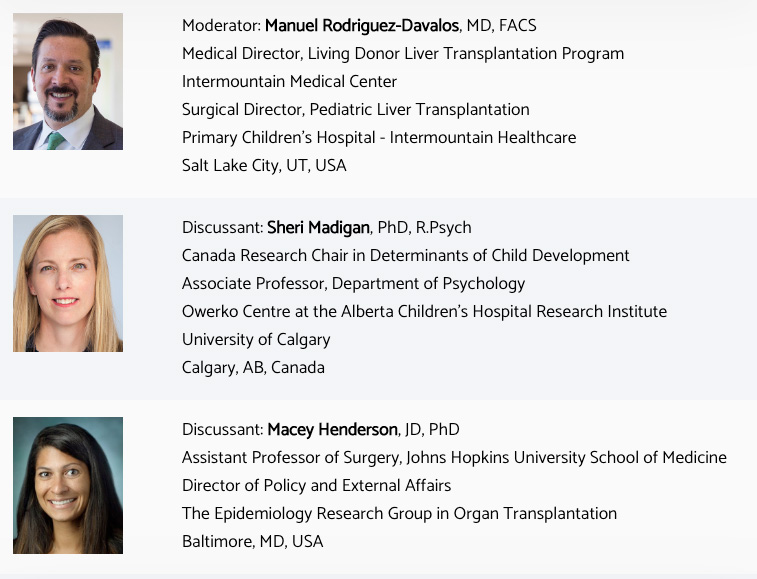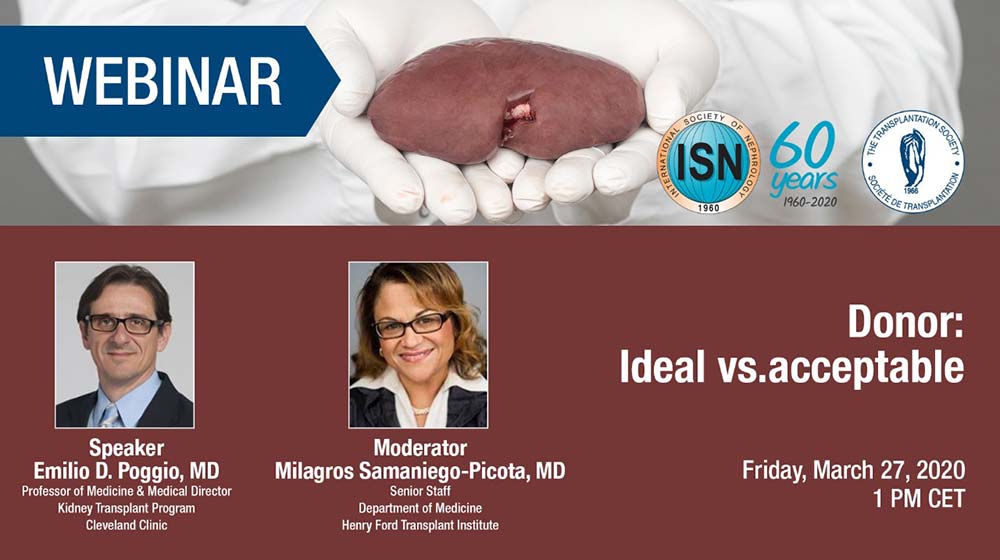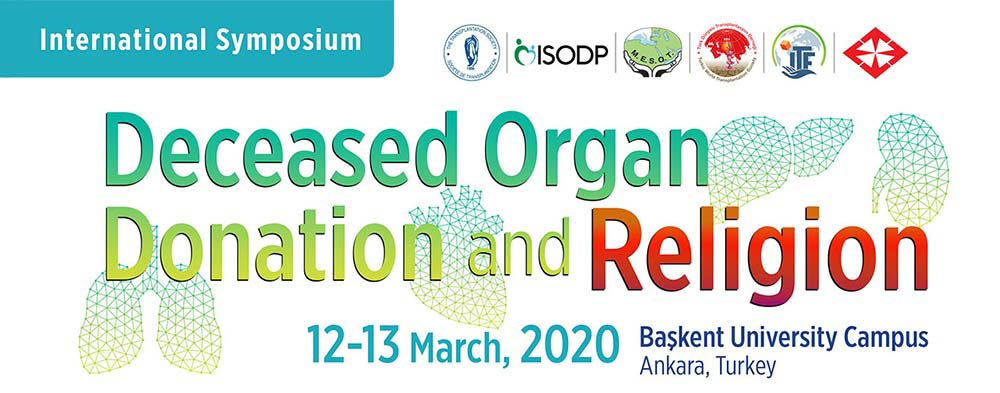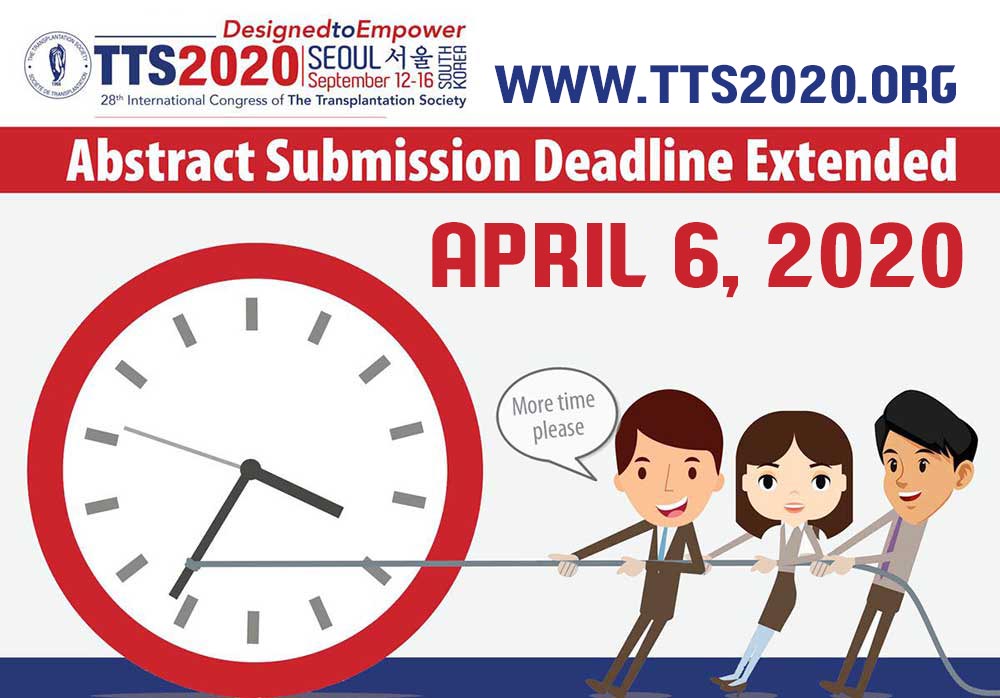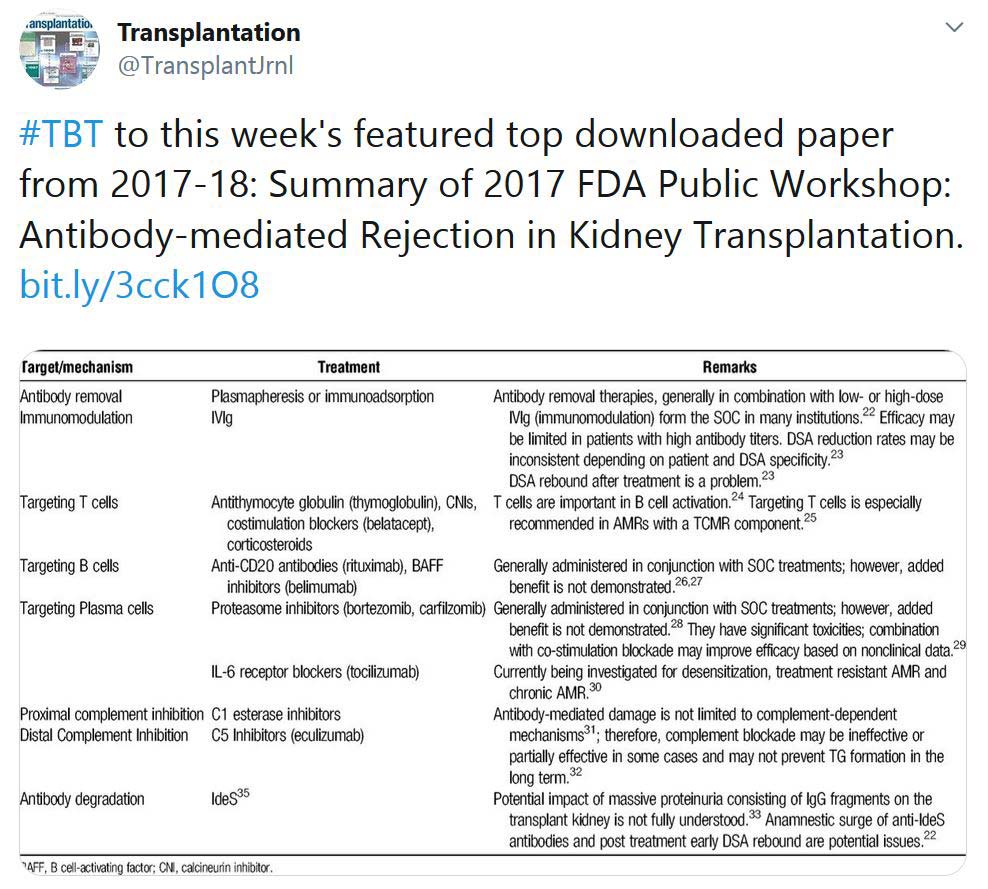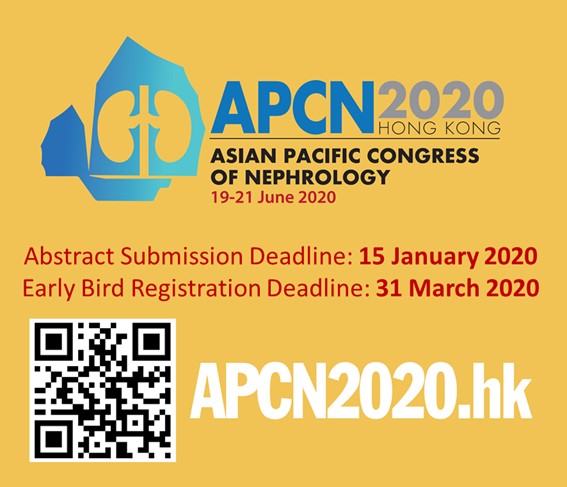
GUIDANCE ON CORONAVIRUS DISEASE 2019 (COVID-19) FOR TRANSPLANT CLINICIANS
This is the third update of Coronavirus Disease 2019 (COVID-19) Guidance from the TID Section of TTS. It is important to note that information about this disease and our understanding of this virus and its impact on transplantation is evolving rapidly so the guidance may change over time. We plan to regularly update the guidance as new information becomes available.
KEY CHANGES SINCE LAST UPDATE:
- Updated global epidemiologic data
- Global Guideline References
- Guidance for sick transplant candidates
- Advice for HSCT recipients
- Add Operational Consideration Guidance
TTS 2020 CALL FOR AWARDS ANNOUNCEMENT & NEW TTS STARZL INNOVATION AWARD
THE MEDAWAR PRIZE
Application Deadline - May 1, 2020
Recognized as the world's highest dedicated award for the most outstanding contributions in the field of transplantation.
TTS THOMAS STARZL INNOVATION AWARD
Application Deadline - May 1, 2020
The award recognizes individuals who, though advanced and original work, have contributed significantly to transplantation, thereby reflecting the spirit pioneered by Dr. Starzl.
TTS RECOGNITION AWARDS
Application Deadline - May 1, 2020
These awards recognize individuals who have made a major international impact in the field of transplantation.
WIT AWARDS
Application Deadline - May 1, 2020
The Woman Leader in Transplantation Award and Unsung Hero Award will be presented to women with extraordinary impact in the field.
TTS EDUCATION COMMITTEE: JOINT TTS-IPTA WEBINAR SERIES ON PEDIATRIC TRANSPLANTATION
TITLE: SOCIAL MEDIA USE IN PEDIATRIC TRANSPLANTATION
WEDNESDAY, APRIL 1, 2020 - 12:00 PM EDT (MONTREAL TIME)
TTS Education Committee and the International Society of Pediatric Transplantation (IPTA) Allied Health Professional Committee (AHPC) have joined together to host a webinar. The Allied Health Professional Committee (AHPC) aligns its mission with that of IPTA to advance the science and practice of pediatric transplantation and to improve the health of all children who require transplantation through the various subspecialties of this group, including nursing, nutrition, psycho-social health, developmental, physical and occupational therapies and pharmaceutical management. Under the auspices of IPTA, the AHPC is dedicated to promoting advances in these inter-professional specialties to improve outcomes for all children who receive transplants and their families and to advocate for their rights as transplant candidates and recipients.
Objectives:
- Dr. Madigan will review the screen use guidelines. It will also provide attendees the opportunity to consider the potential benefits and consequences of digital media in the lives of children;
- Dr. Henderson will introduce the transplant issues, incorporating applications in transplantation and donation as well.
ISN-TTS WEBINAR: DONOR - IDEAL VS. ACCEPTABLE
TRANSPLANTATION DIRECT - HIGHLIGHTED ARTICLE

Dr. Peri Husen, Editorial Fellow, Transplantation
Survival in Living Kidney Donors: An Australian and New Zealand Cohort Study Using Data Linkage
De La Mata NL, Clayton PA, Kelly PJ, et al.
Transplantation Direct: March 2020 - Volume 6 - Issue 3 - p e533 doi: 10.1097/TXD.0000000000000975
Living kidney donors are a highly selected and healthy population, undergoing extensive medical testing prior to organ donation. However, there are only a few outcome and survival studies for living donors. In this study, De La Mara and coworkers assess the survival of living donors and compare it with the general population in Australia and New Zealand. They performed a population-based cohort study of all adult living kidney donors who donated in these two countries from January 2004 to December 2013. National populations from Australia and New Zealand served as reference populations. The authors found, that the 5-year survival probability was 2% higher among living donors relative to the general population (cumulative relative survival: 1.019; 95% CI, 1.014-1.021). The data provided by this article are important to inform living kidney donors of the associated mortality risks and help guide shared decision-making. Country-specific analyses and studies with an extended follow up period might be helpful to provide further information on this crucial subject.
INTERNATIONAL SYMPOSIUM ON DECEASED ORGAN DONATION AND RELIGION
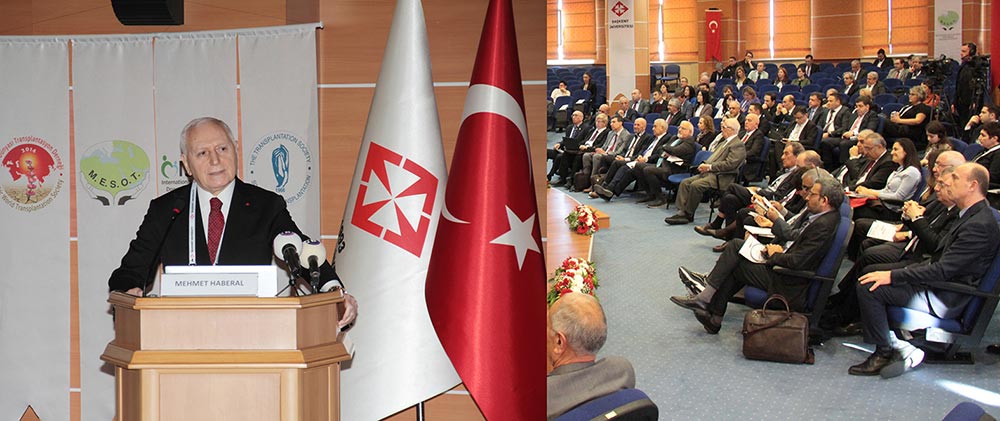
Photo 1 - Professor Haberal during the opening ceremony.
TTS President Professor Mehmet Haberal continues his efforts to engage the transplant community to create a system of meeting the organ demand entirely with deceased organ donation as millions of people die and are buried with healthy organs, which could save the lives of many patients who continue to wait on Transplant lists. However, cultural and religious beliefs play an important role in organ transplantation activities worldwide. In light of these, Prof. Haberal organized an International Symposium on “Deceased Organ Donation and Religion” on March 12-13, 2020 in Ankara, Turkey.
The Symposium, which was organized and chaired by Prof. Haberal, boasted 19 invited speakers worldwide including TTS Past Presidents Prof. Jeremy Chapman and Prof. Philip O’Connell, TTS President-Elect Prof. Marcelo Cantarovich, TTS Secretary, Prof. John Fung, TTS North America Councilor, Prof. Medhat Askar, President of the Indian Society of Transplantation, Prof. Jai Prakash and President of the African Society of Organ Transplantation, Prof. Gamal Saadi as well as religious leaders of the major religions in the world, and scientists in their respective fields including Professors Marwan Masri, Mustafa Al-Mousawi, Josep Lloveras, Vivek Kute, Bassam Saeed, Gail Moloney, Claire Williment, Khikmat Anvarov, and Gustavo A. Melgarejo Benitez in addition to TTS Executive Director Jean-Pierre Mongeau. The Symposium was held at the Baskent University Campus in Ankara with great success and 285 participants from 16 countries (Australia, Azerbaijan, Canada, Egypt, India, Kazakhstan, Kuwait, Lebanon, Russian Federation, Paraguay, Spain, Syria, Turkey, UK, USA, Uzbekistan) attended the Symposium.
The Opening Ceremony drew a large number of participants and started with the welcome speech of Prof. Mehmet Haberal and continued with the opening remarks of Prof. Gamal Saadi, President of the African Society of Organ Transplantation (ASOT). In his welcome remarks, Prof. Saadi drew attention to the importance of deceased organ donation worldwide. Following Prof. Gamal Saadi, His Excellency Mr. Abzal Saparbekuli, Kazakhstan Ambassador to Turkey, mentioned the important contributions that Prof. Haberal had made to the Republic of Kazakhstan and thanked him for his continued support.
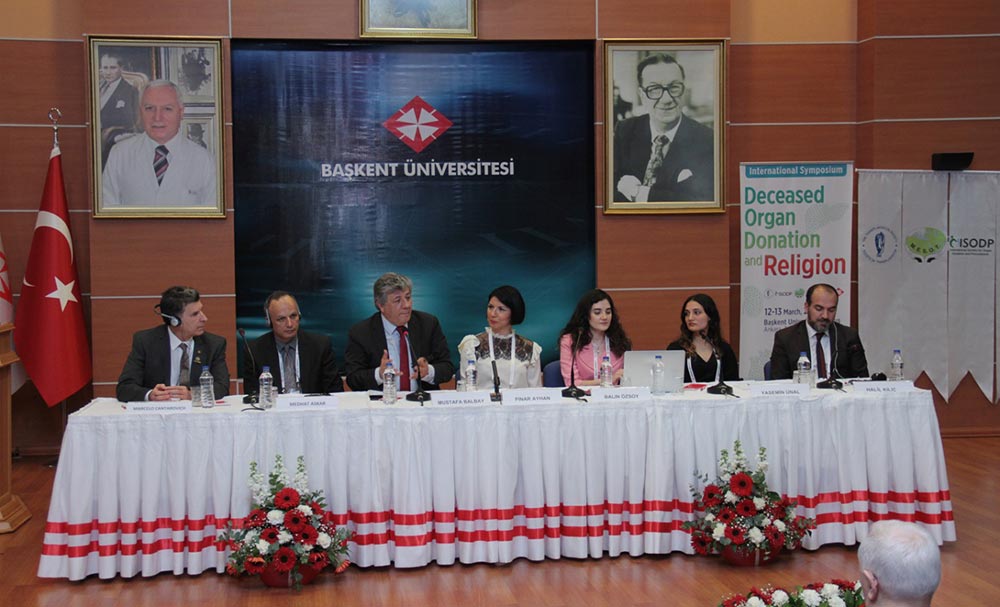
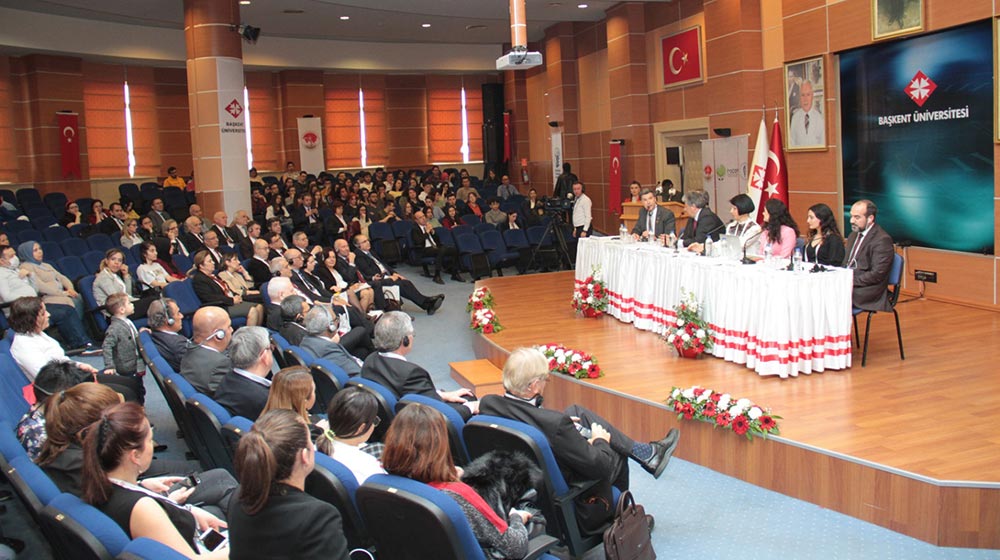
Photos 2 and 3 - Panel discussion on Deceased Organ Donation and Religion.
The first day of the Symposium started with the presentations of the invited speakers. This was followed by a panel discussion on Deceased Organ Donation and Religion where perspectives of different religions were discussed, and participants explored ways to solve the problems caused by cultural and religious beliefs. Mr. Halil Kilic from the Supreme Council of Religious Affairs made contributions on the Islamic perspective, and Mr. Isak Alaluf from the Chief Rabbinate Religious Committee made contributions on the Jewish perspective. At the end of the panel discussion, it was clearly declared by the religious speakers that religion is not an obstacle against organ donation.
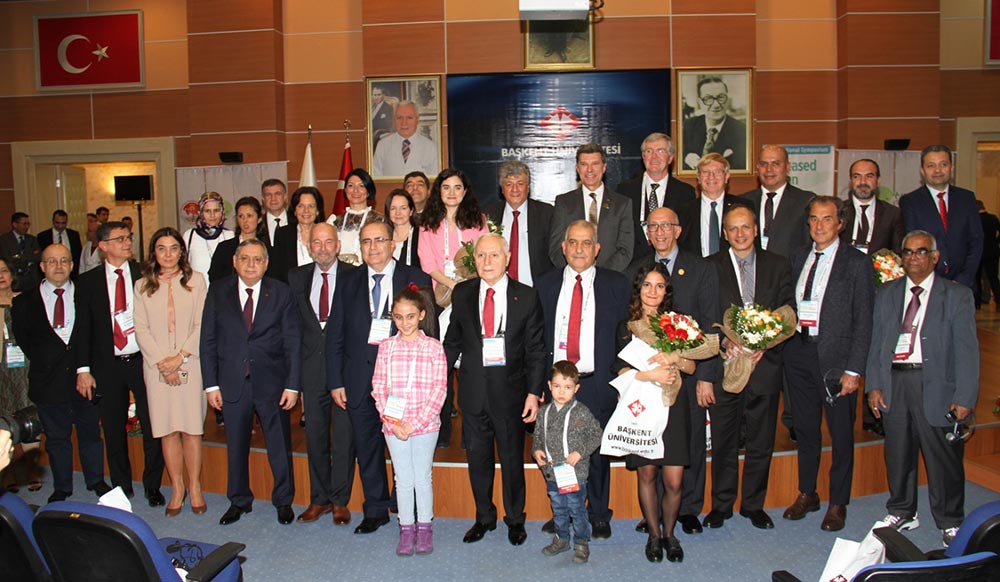
Photo 4 - Group photos of Prof. Haberal with the invited speakers and transplant patients.
The scientific program continued on the second day with the lectures of the invited speakers followed by another panel discussion organized and chaired by TTS President-Elect, Prof. Marcelo Cantarovich and TTS North America Councilor, Prof. Medhat Askar with special emphasis on deceased organ donation and religion. In addition to the religious leaders, representatives from media and T.V., medical faculty students, transplant patients and scientists in their respective fields participated in the panel discussions at the highest level and discussions were broadcasted live on television.
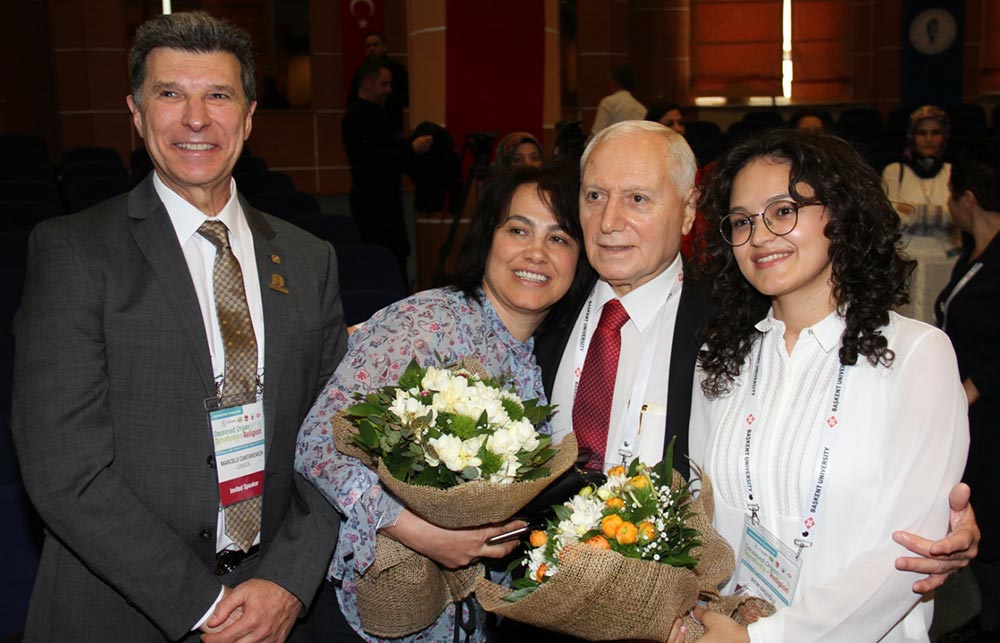
Photo 5 - Prof. Cantarovich and Prof. Haberal with a transplant patient (Irem Basoglu) who received liver from her mother Filiz Basoglu.
Prof. Haberal closed the symposium with a final word of thanks to all attendees and everyone involved in the organization. The International Symposium on Deceased Organ Donation and Religion proved to be a great success, with high positive feedback from all who were in attendance realizing that education and public awareness is essential for increasing deceased organ donation worldwide.
ABSTRACT SUBMISSION DEADLINE EXTENDED TO APRIL 6, 2020
As we are all aware, the current outbreak of coronavirus disease (COVID-19) has been the focus for the medical community throughout the world. This has prevented many of our colleagues to prepare and submit abstracts for our congress in September. We have therefore decided to extend the abstract submission deadline to April 6.
We are also aware that some individuals are concerned about committing to traveling to the congress in September as it is still six months away. We have therefore decided to extend the abstract presenter registration deadline to June 15, at which point much more will be known about the containment for the coronavirus disease.
If you are a TTS Member, we have setup an account for you in the system. You can retrieve your login credentials in the TTS Members area of tts.org.
YOUNG MEMBERS' SCIENTIFIC AWARDS

In order to help young members offset expenses to attend our Congress in Seoul, TTS 2020 will be offering Young Investigator Awards and International Transplantation Science Mentee-Mentor Awards. Award recipients will be selected on scientific merits.
Young Investigator Awards
To be eligible for the Young Investigator Awards, you need to apply by March 23, 2020, submit an abstract to the Congress, be a trainee (within 2 years of completion of their training and/or fellowship) and be a member of TTS.
International Transplantation Science Mentee-Mentor Awards
TTS in collaboration with National and International Societies acknowledges the contribution of basic science to the field of transplantation by offering Mentee-Mentor awards.
To be eligible, you need to apply by March 23, 2020, submit an abstract to the Congress, be a graduate student or trainee (within 5 years of receiving PhD, MD), both Mentee and Mentor must attend TTS 2020 and be member of both TTS and confirmed supporting Societies.
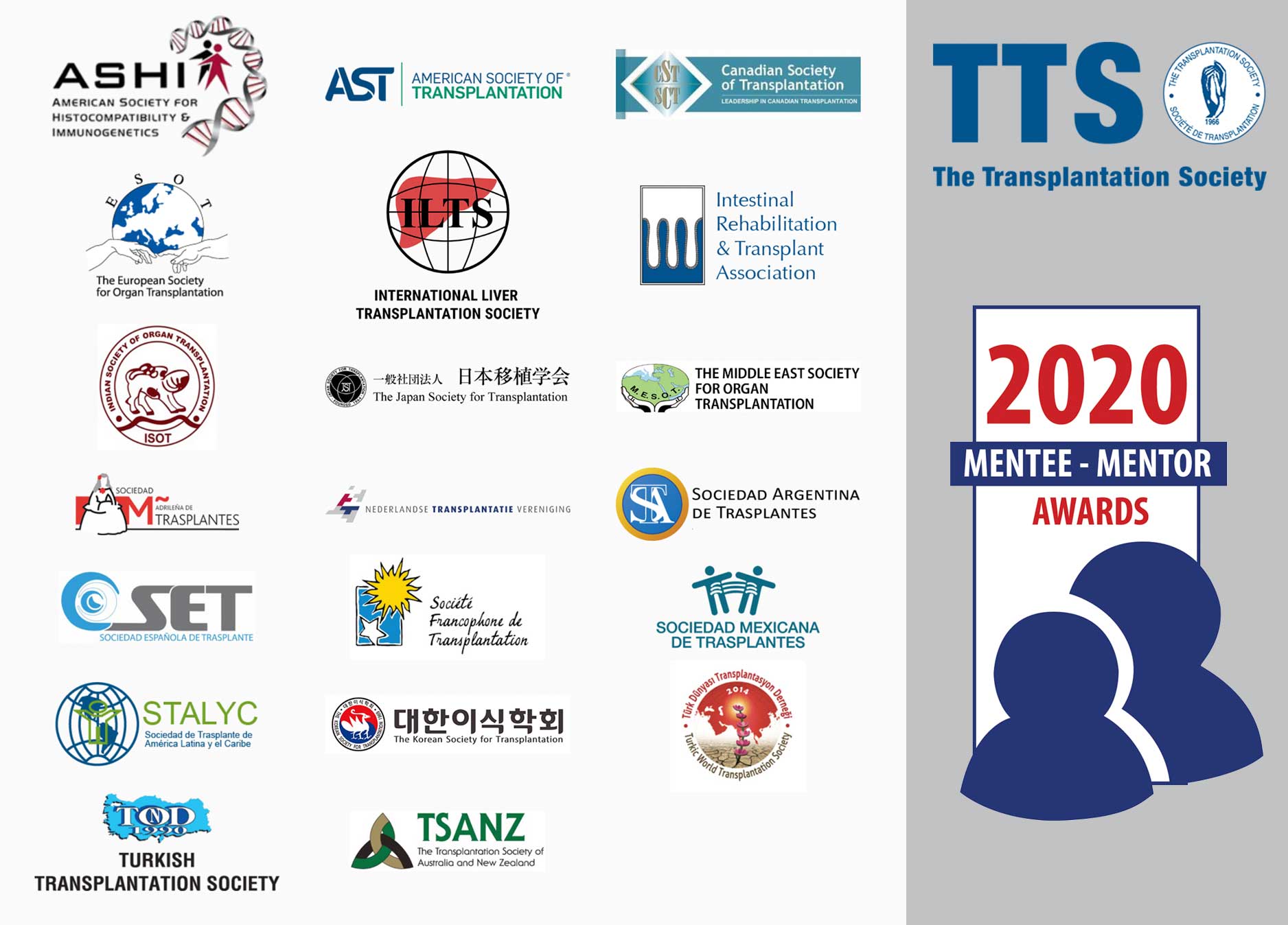
TRANSPLANTATION - WEEK'S MOST DOWNLOADED PAPER
IN THE NEWS
THESE IMPOSSIBLY TINY ORGANS COULD FINALLY END ANIMAL TESTING
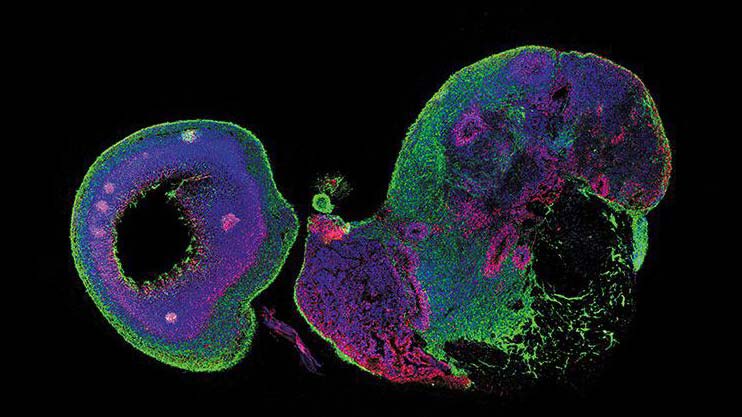
March 9 - Medical researchers from the Wake Forest School Institute for Regenerative Medicine and The Ohio State University have developed an intricate system of microscopic organ replicas—including the liver, heart, lungs, blood vessels, testes, colon, and brain—to improve pharmaceuticals testing currently being performed on animals or in petri dishes. The full system, fit with multiple organs, was then embedded onto a computer chip.
EARLY BLOOD MARKER MAY PREDICT FUTURE RISK OF KIDNEY TRANSPLANT FAILURE
March 12 - In a study of kidney transplant recipients, the composition of certain immune cells in the blood 1 year after kidney transplantation was linked with a patient's subsequent risk of kidney transplant failure.
IN SITU RECRUITMENT OF REGULATORY T CELLS PROMOTES DONOR-SPECIFIC TOLERANCE IN VASCULARIZED COMPOSITE ALLOTRANSPLANTATION
March 13 - Each year, millions of individuals sustain unsalvageable composite tissue loss secondary to various etiologies. Vascularized composite allotransplantation (VCA) is an option in select patients, where current reconstructive strategies are suboptimal or fail in terms of cosmetic or functional outcomes. Over the past decade, various types of VCA transplants have been performed, including hand and face transplants, for which systemic therapy with two or more immunosuppressive drugs is the standard of care. Despite their efficacy in preventing early graft loss, the overriding concern with conventional immunosuppression is the associated toxic sequela.
TRANSPLANT METHOD AVOIDS REJECTION OF DONOR LEG FOR MONTHS IN RATS
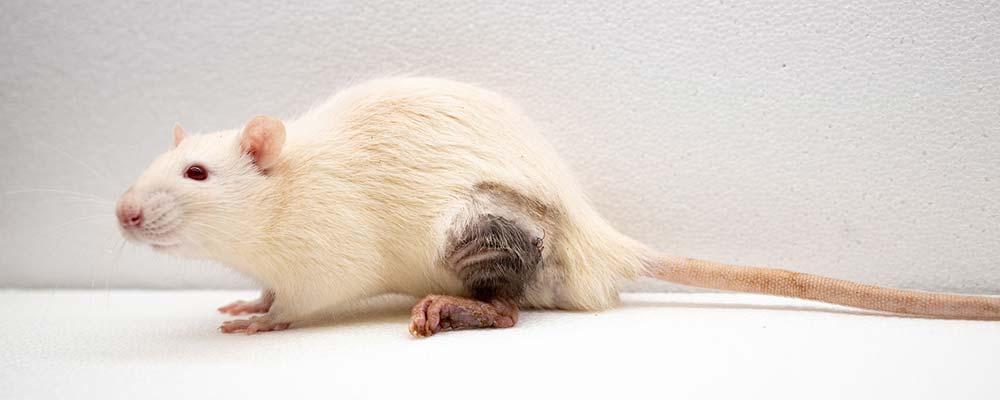
March 13 - Getting any kind of transplant typically means taking multiple immune-suppressing drugs forever after to avoid rejection of the donor organ or tissue. A study published in Science Advances demonstrates a way around long-term immune suppression. The researchers injected microparticles that release a protein that recruits regulatory T cells to train the immune system of rats receiving a donor limb to recognize the foreign tissue as self instead of non-self.
HIGHER MICROBIOTA DIVERSITY LINKED TO LOWER RISK OF MORTALITY AFTER TRANSPLANT
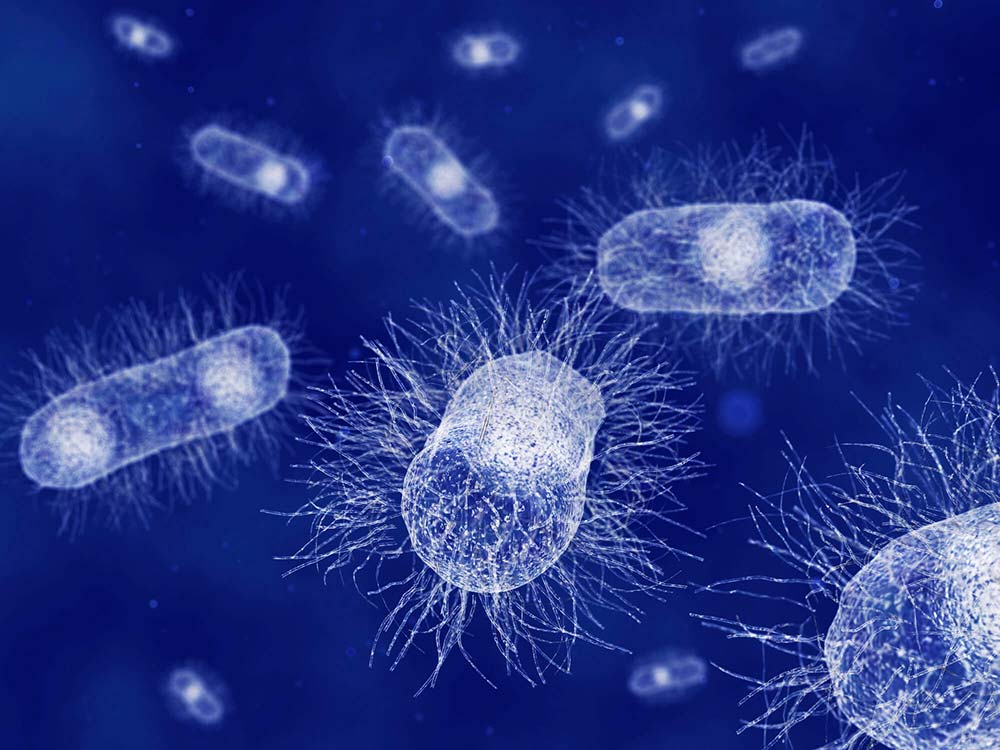
March 9 - Patients undergoing allogeneic hematopoietic cell transplantation (allo-HCT) who have greater intestinal microbiota diversity may have a lower risk for mortality, according to research published in The New England Journal of Medicine.
UPCOMING MEETINGS AND ANNOUNCEMENTS
18th Asian Pacific Congress of Nephrology (APCN)
Contact
Address
The Transplantation Society
International Headquarters
740 Notre-Dame Ouest
Suite 1245
Montréal, QC, H3C 3X6
Canada
Используйте Вавада казино для игры с бонусом — активируйте промокод и начните выигрывать уже сегодня!

